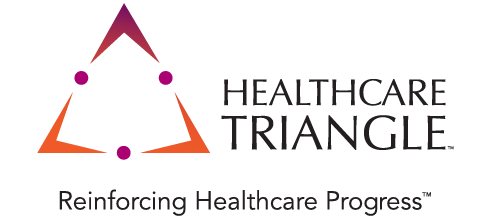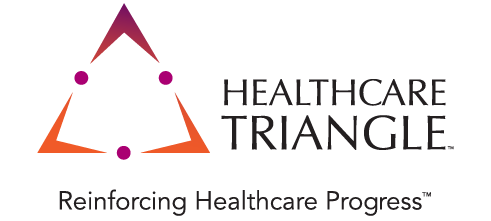Challenges in Implementing Managed IT Services in Healthcare
Healthcare Triangle
Jul 30, 2024
The healthcare industry is now in the process of digital upheaval, and health information technology (HIT) lies at the very core of enhancing patient care, streamlining workflows, and boosting operational efficiency.
But complex IT infrastructures are difficult to manage, security is robust, and compliance requirements are so complicated that they are overwhelming to most healthcare organizations. This is where managed it services for healthcare could have a compelling solution.
An MSP (managed service provider) could act as an extension to an IT department of a healthcare organization and offer a host of services in the domain of network security, system monitoring, data backup and recovery, and helpdesk support.
Among all these significant advantages of managed IT services, there is a not-so-simple challenge pertaining to their introduction into the domain of healthcare.
How Managed IT Services Help Ensure Regulatory Compliance?
These healthcare regulations can overwhelm even the most prepared organizations. Healthcare MSPs are knowledgeable about the healthcare world.
Such MSPs improve their expertise in the ever-changing landscape of compliance to ensure EHR systems are correctly implemented, and data protection is aligned according to what is required by HIPAA and various other laws.
- HIPAA sets standards on the protection of patient information in privacy and security in electronic healthcare systems.
- It encourages the adoption of electronic health records and strengthens the regulations of HIPAA.
- HIPAA Ensures secure handling of patient data.
- HITECH Promotes using EHRs for better health care.
Challenge 1: Data Security and Privacy
A very sensitive data repository maintained by health care organizations is the electronic health record. Of course, ransomware attacks and breaches are always common dangers that could severely influence operations in the continuum and hurt the reputations of organizations, apart from the huge fines imposed for non-compliance with regulations such as the Health Insurance Portability and Accountability Act.
Solution
MSPs for healthcare must be able to demonstrate their record in having Hunter-Sharp security measures in place. This means advanced encryption technologies are in place, regular security audits occur, and tight access controls ensure that only those with proper authorization will have access to this sensitive information.
Challenge 2: Adherence to Regulations
The health care environment is laced with a myriad of complicated compliance requirements. Many of these deal with such things as data security measures related to the protection of the privacy rights of patients and the processes involved in reporting data breaches. In addition, non-compliance might result in heavy fines, disruptions in operations, and loss of reputation.
Solution
An effective MSP will not only understand specific healthcare compliance requirements but also keep up with changes in regulation. Working with a dedicated-compliance MSP can help healthcare organizations assure that their IT infrastructure and practices comply with regulations.
Challenge 3: Integration Challenges
For instance, in large healthcare organizations, the EHR systems associated with medical devices and administrative software often come from various vendors. This integration between many disparate systems is a big challenge.
Solution
MSPs experienced working with the healthcare vertical bring to the table a requisite ability to integrate a host of technologies and assure seamless data interchange. This, in turn, improves operational efficiency to present a more soporific view of patient care.
Challenge 4: Service Quality and Response Times
Downtime, if of any kind, can be quite critical in any healthcare environment. It will then involve guarantees regarding the quality of service and fast response times from the MSP to minimize disruptions and ensure that critical systems are available 24/7.
Solution
A well-defined SLA should be designed with the MSP, clearly laying down performance metrics and expected response times, and the consequences in case of underperformance. Regular communication and review of performance are essential in maintaining optimal service quality.
Challenge 5: Internal Resistance to Change
This managed IT services model can be seen as a threat by the internal IT staff who resist change. Effective communication and change management strategies will help a lot in making this transition seamless.
Solution
Engage the internal IT staff of healthcare organizations for their views and participation in the selection and implementation processes for managed services. Demonstrating an increase in efficiency that allows the re-tasking of internal IT resources to strategic initiatives will help alleviate many concerns and give meaningful collaboration with the internal IT staff.
This is how carefully these typical challenges are considered, and workable solutions are adapted to the same, that counts for a way healthcare organizations can leverage managed IT services to harden their cybersecurity posture, simplify compliance management, optimize IT operations, and, of course, improve patient care.


